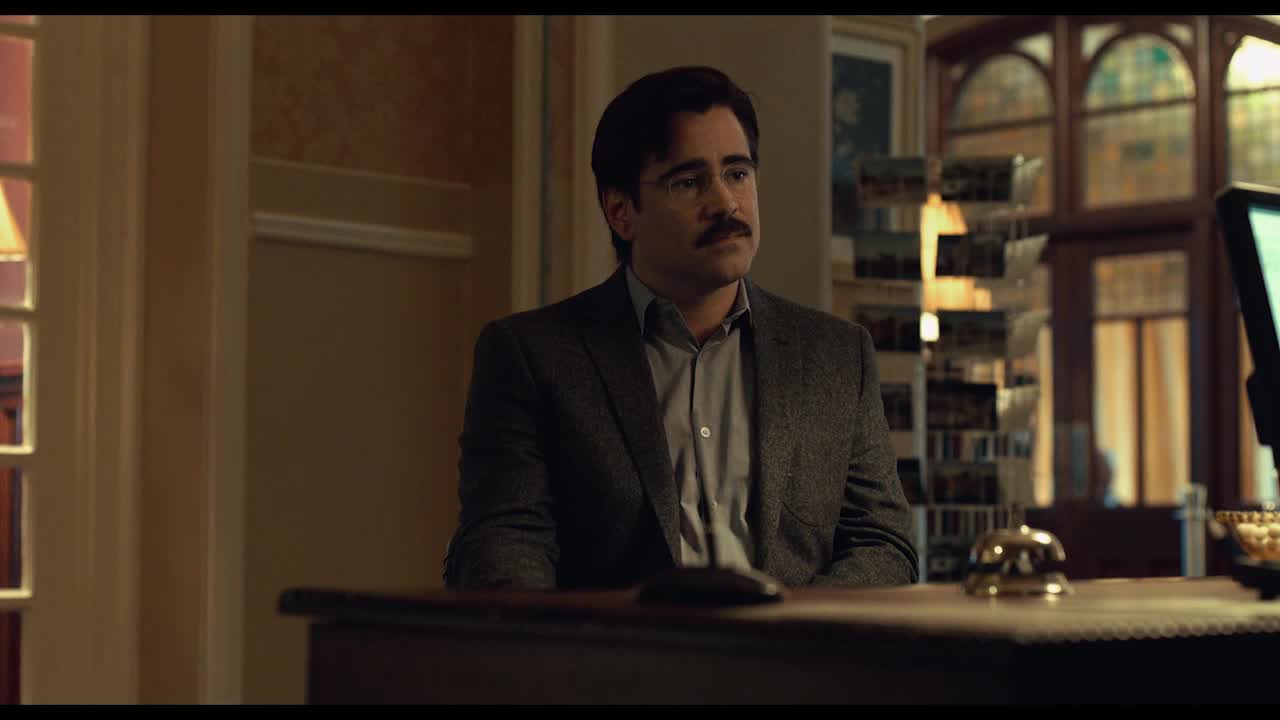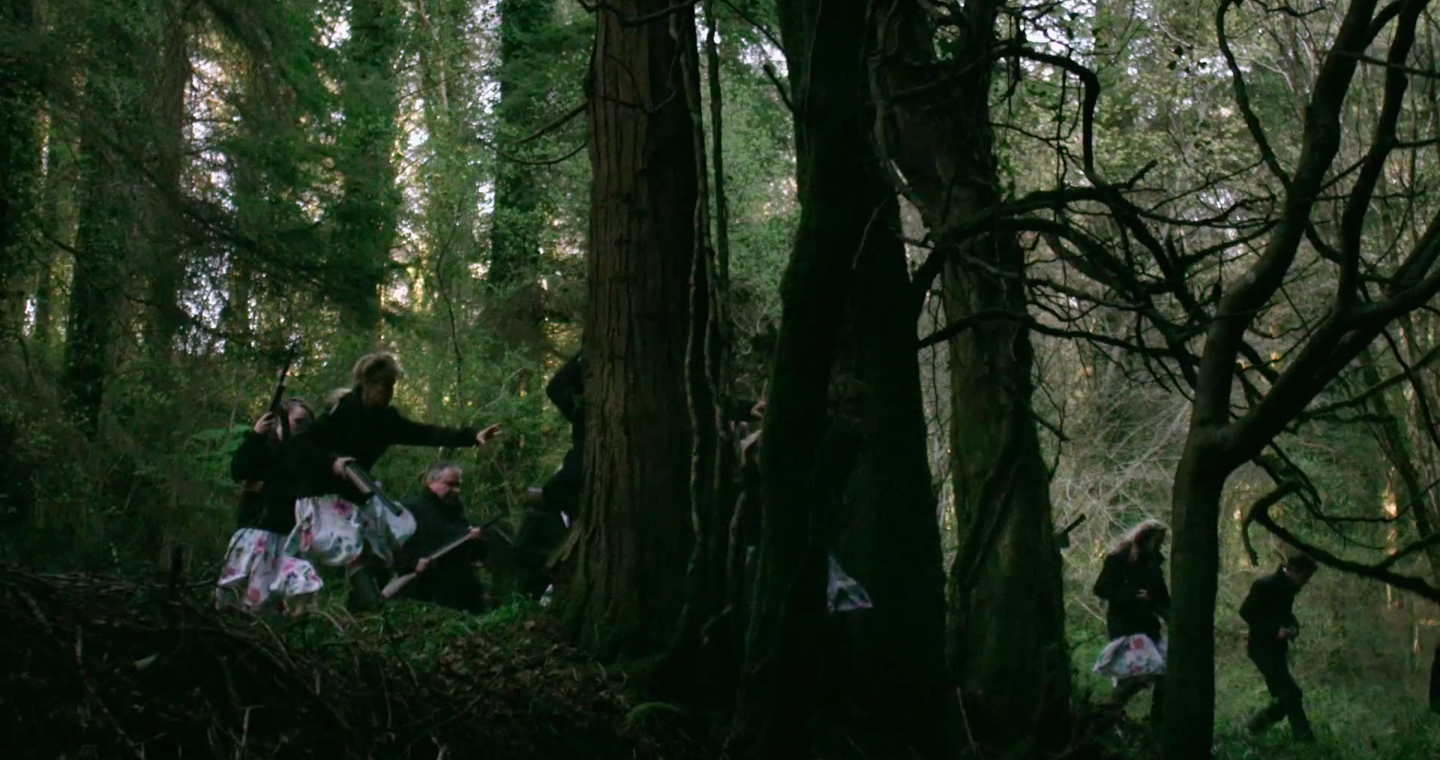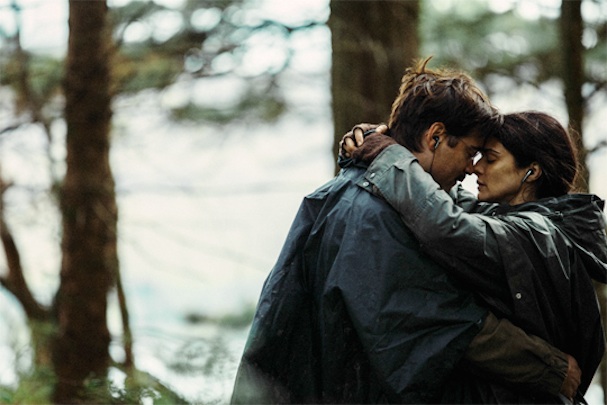By Penny Theodorakopoulou,
Continuing the homage to Greece’s representative of the Cannes Film Festival and top director, Yorgos Lanthimos, this time we are focusing on one of his most talked-about movies: The Lobster (2015).
Marking his fourth feature-length movie, Yorgos Lanthimos wishes to present on the silver screen a dystopian and surreal reality, where everyone’s life revolves around and depends on finding a suitable partner.
The Lobster was directed by Yorgos Lanthimos, who also helped in writing the scenario of the movie alongside his “partner-in-crime”, Efthimis Filippou, as well as being one of the four producers among Ceci Dempsey, Ed Guiney, and Lee Magiday. At the 2015 Cannes Film Festival, it was chosen to compete for the Palme d’Or and received the Jury Prize. It was screened as part of the 2015 Toronto International Film Festival’s Special Presentations section. At the 89th Academy Awards, the film was nominated for Best Original Screenplay and at the 69th British Academy Film Awards, it was nominated for Outstanding British Film.
From the very first scenes of the movie, we are introduced to the movie’s plot, more or less. The movie’s society has numerous stereotypes and rules, one of its essential ones is to always be in a relationship/marriage, as mentioned above. Whoever is single one way or another is forced by the government to stay at a hotel for 45 days, in pursuit of a new partner. During those 45 days, they have to do some “mini-tasks” in order to reach their ultimate goal, which is to, of course, find their “other half”. If those days “expire”, it is said that they are taken away and a procedure takes place, where surgeons remove one’s skin and vital organs and replace them with the animal the patient had chosen. In David’s (Colin Farrell) case, he wishes to become a lobster, because a lobster can live up to a hundred years, stays fertile throughout its life, and David enjoys the sea quite a lot.

As said previously, the “potential candidates” of the hotel ought to do a few tasks. First, in order to have higher chances of finding their suitable partner, they need to go to the “Hunt”, where they kill other “loners” in exchange for extra days at the hotel — not your typical go-to Hunger Games, dare I say. Secondly, once they spend time meeting new people, they try to find their partner by spotting any common characteristics.
Based on that, I would like to note that the movie is based on that condition throughout its duration. We are constantly reminded that having at least one thing in common — from both being good at Math and having a limp to knowing German or being heartless — is mandatory, for “a wolf and a penguin could never live together, nor could a camel and a hippopotamus”, as the movie highlights, when David gets a visit by the hotel manager (Olivia Colman) and her husband. But we will get to that shortly.
Once they get into a relationship, they move to a double bedroom, where they will stay for two weeks. The final “test” will be at the yacht, where the couple will spend another two weeks before moving to the city as an official couple. However, if the couple is constantly fighting, they are given a child, which is said to help the couple and prevent any arguments.
It is crystal clear that Yorgos Lanthimos has done a remarkable job at presenting to us his dystopian society, as well as his inspirations. With meticulous use of slow motion and evident inspiration from Lars Von Trier and Antichrist (2009), the scenes of “The Forest” and “The Hunt” are aesthetically striking. Trier is a director who has functioned as a catalyst in the narrative perspectives of Lanthimos. Stanley Kubrick’s work is noticeable in Lanthimos’s The Lobster. As seen by the internal sequences of the hotel, there are several hallways that are reminiscent of Kubrick’s The Shining (1980). Everything at the hotel (and the film as a whole) is rich with symbolism. Also, the intelligent allegory of the movie and the transformations of food into other animals seem like a direct reference to Homer and the witch Circe.

One might think that The Lobster might be, at least at first glance, referring to Plato’s myth about soulmates. According to Greek mythology, humans were formed with four arms, four legs, and a head with two faces. Fearing their strength, Zeus separated them into halves, sending them on a lifelong quest to locate their missing halves. However, in my point of view, I do not think this is the case. The movie is overflowing with symbolism, that is a solid fact. Nevertheless, what I perceive after watching this movie twice is that it is not based on a myth nor is there anything absolutely surreal about the movie — it is our reality.
And I hear you question yourself, especially if you have watched the movie: “Is it not a dystopian society? In our world, we are not being brainwashed or punished whenever we do something on our own, right?”. My answer: not quite true. In the movie, we are shown that the hotel manager, with the help of the hotel’s staff, is doing some kind of propaganda against being single by presenting extreme examples (choking from food, rape, etc.). And I agree that such visual propaganda does not take place in our society. But can we claim that something similar does not happen to our society? From my perspective, there are quite a lot of similarities between Lanthimos’s dystopian society and ours.
First and foremost, the so-called propaganda. Once we get into our 20s, our family and relatives as well as society itself keep reminding us that, in this decade of our lives, we are supposed to get a degree (for those who are in a university or college), find a financially stable job, be in a relationship, move in together, get married, start a family, tell our own kids in their 20s to do what we did, and the vicious cycle continues; and if we have not succeeded in one of those fields, we are being “finger-pointed” for not keeping up with society’s rules.
As in real life, in the movie, there are times when you cannot control your affection or interest for someone, even if you do not have anything in common in particular. That is what John, the Limping Man (Ben Whishaw) does. He is attracted to a young woman who nosebleeds all the time (Jessica Barden), but he does not nosebleed. So, he hits his nose and forces himself to nosebleed, so she can see that they have something in common and be together with him. A similar scenario can be implied in real life: let us say that Person A has developed a love interest for Person B, who enjoys hiking. Person A, on the other hand, has never tried hiking because they are afraid or have not had the chance to try it. So, in order to be noticed by Person B, Person A has two options: one, to actually start hiking and talk about it with Person B, thus spending more time together and getting to know each other better; and two, pretend they like hiking and build a relationship based on a lie.

Taking into consideration the latter option, there are consequences when you lie to your partner, as in real life. In the movie, when David (Colin Farrell) lies to his partner, the Heartless Woman (Angeliki Papoulia), for his nonexistent feelings towards anything, she went to report him to the hotel manager, to be turned into an animal no one wants to be, which is not mentioned in the movie.
All in all, The Lobster is a spectacular movie, both for its depiction of Lanthimos’s way of thinking into a movie. Additionally, Colin Farrell’s embodiment of David’s character, as well as the whole cast’s cold expressions, which match the movie’s atmosphere. However, there is a plethora of times when things go “south”, both story and acting-wise, especially in the second part of the movie. My personal note on the movie: reality can be harsh, mean, and strict; but there is beauty in it, which is called love; which might not be the case in The Lobster’s society though.
References
- The Lobster – Review, ign.com, Available here
- The Lobster, rogerebert.com, Available here
- The Lobster review – dating satire loses flavour at the tail end, the guardian.com, Available here
- Review: In ‘The Lobster,’ Colin Farrell Plays a Divorced Man in a Loner-Hating Society, nytimes.com, Available here
- The Petty Laments of Yorgos Lanthimos’s “The Lobster”, newyorker.com, Available here
- The Lobster, wikipedia.org, Available here




